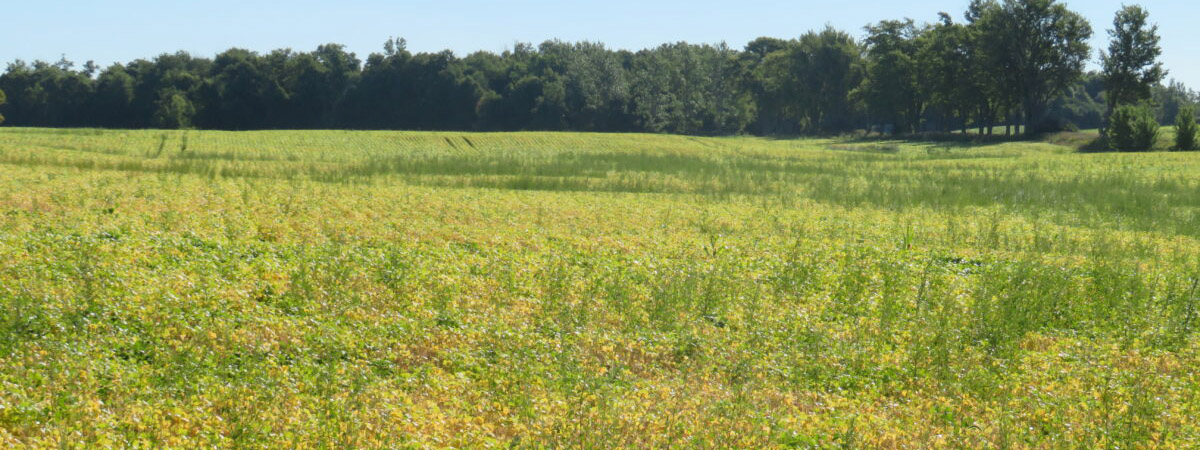Refer to OMAFRA Publication 75, Guide to Weed Control, for information on specific chemical and cultural control options in dry edible beans. Refer to the article Basic Principles of Weed Control for Dry Beans for a brief outline of foundation programs and safe rates of Pursuit by market class. Consult the Harvest section of this website or use the search function for articles on pre-harvest herbicide applications.
Options for controlling annual broadleaf and perennial weeds with herbicides are limited in dry edible beans, so weeds must be controlled in the previous crop.
Weeds present at harvest may also create quality problems (i.e., seed staining) and reduce harvest efficiency. Nightshade and perennial pokeweed cause severe staining of beans at harvest. Corn is often favoured as a previous crop due to the number of options for controlling problem weeds. Cultivation between the rows can be used to control weeds. Note that not all dry edible bean classes are tested in herbicide-tolerance evaluations, and the classes may vary in their tolerance to certain herbicides.
Dry edible beans are very sensitive to certain herbicides that may be in the soil. To reduce carry- over injury from previous crops, select herbicides carefully the year prior to bean production. Refer to Table 3–4, Herbicide Crop Rotations, and pH Restrictions in the chapter “Herbicides Used in Ontario” in OMAFRA Publication 75, Guide to Weed Control.
Considering all the factors, the ultimate rotation crops for dry edible beans include corn, forages and cereals. A previous crop of corn or cereals provides a good opportunity to control weeds, and an effective break in edible bean diseases. The earlier harvest date of dry edible beans allows for timely planting of winter wheat. A cereal crop in which weed control was good would be preferred over a corn field where compaction following a wet harvest might be an issue. Forages promote the best soil structure, but soil insects and weed pressure can be an issue.
